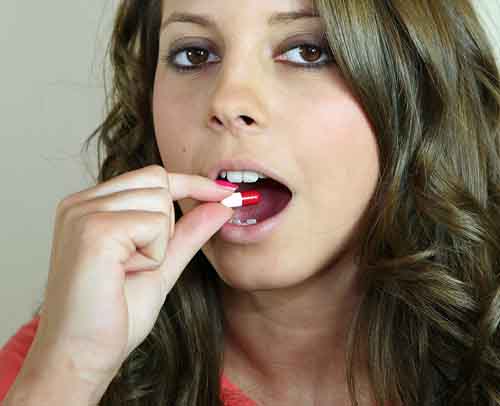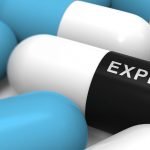I know it sounds a bit weird for someone ensconced in complementary medicine, but I regularly read the New England Journal of Medicine (NEJM) and the Journal of the American Medical Association (JAMA). No, not the entire issues! The vast majority of articles are discipline specific shop pieces — such as an article for dermatologists on a study that has potentially identified a genetic component for a rare (one in 300,000,000) skin disorder. Nor am I particularly interested in studies commissioned by drug companies in support of their drugs. They are often so abusive of facts as to be virtually meaningless. No, my interest is actually reserved for the three smaller, but far more interesting categories of articles: revolutionary medical breakthroughs, anything related to alternative health, and position papers. To me, these articles represent both the best and worst in modern medicine. Unlike many in the alternative health community, I find much to admire in the medical community. True, you have to sift through the lies and propaganda to know what you’re reading. But that said, modern medicine is constantly making major breakthroughs in the treatment of disease and in the development of innovative technologies — to help the blind to see and the paraplegic to walk, for example. It’s truly exciting, and it represents a tremendously positive side of modern medicine.
Then there are the articles about alternative health. These I need to read regularly because they often promote hugely flawed studies that, not surprisingly, come to disparaging conclusions about alternative health. Unfortunately, these studies frequently rely on bad science and are far too numerous for those of us in the alternative community to respond to them all. You might almost think that the medical community had an agenda the way they go after complementary medicine with bad science. (More on this later.)
And finally, there are the AMA position papers, presented in JAMA as “Commentaries.” These include far ranging positions on anything that the medical community feels affects its interests — which at various times has included its advertisers. That’s why, back in the day when JAMA carried ads for cigarettes, they also published position papers promoting the virtues of cigarette smoking for weight loss. Now, while it’s true those days may be gone, today we nevertheless find equally absurd position papers from the medical community supporting the use of high fructose corn syrup, for example. (And don’t you just know they’re going to regret that one eventually.)
All of which brings me to the subject of today’s newsletter: a recent “commentary” article concerning dietary supplements, written by Bryan E. Denham, PhD. and published in JAMA, thus carrying the imprimatur of the American Medical Association.1 If you were to hazard a guess, what side of the issue do you think the good doctor and the AMA came down on — pro or con vis-à-vis alternative medicine and dietary supplements? Good guess!
Taking on JAMA
Let’s take a look at this article, titled “Dietary Supplements — Regulatory Issues and Implications for Public Health,” quoting the key points, and methodically commenting on them one at a time.
“Currently, for a tainted or otherwise hazardous product to be removed from the supplement marketplace, an agency such as the FDA or the Drug Enforcement Administration must offer evidence that the product is unsafe, contains a controlled substance, or is absent ingredients listed on the product label after the product has appeared in retail outlets.”
So, the complaint is that government agencies don’t have the right to ban supplements comprised of “generally regarded as safe” ingredients unless that particular supplement is proven to be other than what it claims to be? Really, that’s the medical concern here? I know I’m a lot more concerned about pharmaceutical drugs that continue to be sold even after they are proven to be unsafe and kill people. Hormone replacement therapy is still prescribed and sold to over 3,000,000 women a year in the United States alone — even after it was proven to increase the risk of death from both heart disease and cancer. The number of deaths each year caused by that one prescription alone dwarfs all of the deaths that could be attributed to every single alternative health remedy sold in the United States over the last quarter century! In marketing, that’s called valuation by perspective.
“For US health professionals, the fact that more than 150 million US residents use dietary supplements should be a point of concern as many users will almost certainly forgo conventional medical treatment in favor of using products that may offer no medicinal value and taking health advice from medically untrained sales representatives.”
When we talk about people using products that may offer no medicinal value, let’s talk about statin drugs and antidepressants. Statin drugs have now been shown, by the pharmaceutical companies’ own research no less, to have no value at all (none, zero, nada) when it comes to adding even one single day to your life unless you’ve already had a heart attack. Antidepressants have been proven to be about as effective as a placebo, except in the most severe cases. But even worse, they double your risk of relapsing into depression. Perhaps the medical community should worry a bit more about getting its own house in order before taking on the “complementary” community.
“Counterintuitively, DSHEA became law 5 years after the L-tryptophan amino acid disaster of 1989, in which 38 individuals died and 1500 sustained adverse reactions.”
Yes, those statistics are correct…but also misleading. People didn’t die because there was anything inherently wrong with L-tryptophan as a supplement. In fact, after an extensive investigation, the Center for Disease Control announced in the New England Journal of Medicine that the problem was not actually with L-tryptophan, but with a batch of contaminated products produced by the Japanese manufacturer Showa Denko. In point of fact, the FDA confirmed this in their official publication, FDA Consumer, which stated, “It appears the problem is not with the amino acid itself, but rather with the product becoming contaminated as a result of a change in the firm’s manufacturing process.” What they didn’t mention is that the change that caused the problem was actually pushed by the FDA to improve safety, no less.
 “When the FDA appeared heavy-handed in its response to the supplement catastrophe, industry lobbyists began applying pressure to lawmakers, especially those with a vested political interest in the economic success of supplement companies. US Senator Orrin Hatch, representing Utah, a major producer of dietary supplements, responded to industry appeals by coauthoring DSHEA and shepherding it through Congress.”
“When the FDA appeared heavy-handed in its response to the supplement catastrophe, industry lobbyists began applying pressure to lawmakers, especially those with a vested political interest in the economic success of supplement companies. US Senator Orrin Hatch, representing Utah, a major producer of dietary supplements, responded to industry appeals by coauthoring DSHEA and shepherding it through Congress.”
The JAMA article forgets to mention that rather than just recalling the contaminated L-tryptophan, the FDA chose to ban all L-tryptophan totally from the market — indefinitely. Why? At the time of its banning, sales of L-tryptophan in health food stores were running around $180 million a year. It sold so well because it worked. It helped with everything from depression to anxiety to stress. Unfortunately, it worked too well, was a natural substance so it couldn’t be patented, and was priced too low. This was unacceptable; and so, when the first excuse presented itself, L-tryptophan was pulled from the market.
Amazingly, as “chance” would have it, within 4 days of the banning of L-tryptophan, Prozac was the cover story in Newsweek magazine. Almost, as if by a miracle, it seems, Prozac, which is patented and is far more expensive than L-tryptophan, was there to fill the gap and became the miracle drug to take the place of L-tryptophan. Oh, and as we’ve already mentioned, unlike L-tryptophan, Prozac works no better than a placebo and it can cause psychotic episodes that lead to murder. Unfortunately, it’s part of an $11 billion industry, so it’s not going anywhere.
“In 2009, a US Government Accountability Office (GAO) report found that ‘consumers are not well-informed about the safety and efficacy of dietary supplements and have difficulty interpreting the labels on these products.'”
Just so we’re clear here. U.S. law prohibits supplement manufacturers from stating the benefits of supplements as demonstrated in numerous studies, not to mention anecdotally over centuries — except within carefully defined limits — which means that consumers aren’t being given the information they need to make informed decisions. The complaint that consumers are uniformed, then, is pretty much based on circular logic. Or if you prefer, the game is rigged.
“In fact, one of the most significant problems with DSHEA is that it allows structure and function claims to appear on product labels; as long as products do not claim to treat, prevent, or cure specific diseases, they can enter and remain in the marketplace.”
In for a penny, in for a pound, Dr. Denham! So the solution to better “informing” consumers is to provide them with even less information? Fascinating!
 “The concern is that consumers may not differentiate between technical descriptions and marketing language and may attempt to use dietary supplements in place of medicines that have been tested in rigorous trials. To that end, a 2010 GAO investigation found that sellers of dietary supplements may actually encourage consumers to substitute supplements for physician-prescribed medications.”
“The concern is that consumers may not differentiate between technical descriptions and marketing language and may attempt to use dietary supplements in place of medicines that have been tested in rigorous trials. To that end, a 2010 GAO investigation found that sellers of dietary supplements may actually encourage consumers to substitute supplements for physician-prescribed medications.”
So all of the natural health experts who advised pregnant women to take folic acid supplements for decades before the FDA approved the claims were in the wrong, how? The women who followed their advice prevented untold cases of spina bifida and neural tube defects that the FDA actively allowed. And is it really better to have a physician surgically repair spina bifida than to prevent it with a little supplement? And it’s not just folic acid. You can add supplements such as Omega-3 fatty acids, antioxidants, and soluble fiber, to name just a few, where the alternative health community was saving lives and preventing emergency hospital visits for several decades before the medical community finally caught up.
“In preparing its 2010 report, the GAO investigated 22 retailers of herbal dietary supplements, hiring an accredited laboratory to examine 40 single-ingredient supplements for the presence of lead, arsenic, mercury, cadmium, and assorted pesticides. Although none of the supplements qualified as having an acute toxicity hazard, trace amounts of at least 1 contaminant were found in 37 of 40 products.”
This complaint is a red herring. The GAO is talking about trace amounts of contaminants. You do realize that virtually all of the food you buy has trace contaminants of exactly those same contaminants — not to mention insect parts and rat feces. The water you drink has trace levels of contaminants — not to mention known added carcinogens such as chlorine and fluoride. Anything connected with nature is going to have trace levels of contamination. That’s life. But let’s get real here; most of the flu vaccine injected by the loyal doctors ofJAMA is manufactured with Thimerosal, a preservative that is 50% mercury!! I would suggest pulling the 50% mercury that you directly inject in people’s veins before you complain about the trace levels of contaminants in naturally sourced supplements.
“According to the GAO, more troubling than the contaminants was the dubious and potentially hazardous advice offered to investigators who had posed as elderly customers. The GAO gathered written materials from online retailers, observing claims of treating, preventing, and curing conditions such as diabetes, cancer, and cardiovascular disease. Among the more egregious marketing efforts were claims that garlic could be taken in place of high blood pressure medication and that ginkgo biloba could be used to treat Alzheimer disease, depression, and impotence. Studies conducted by the National Center for Complementary and Alternative Medicine have shown that ginkgo biloba, in particular, does not reduce the risk of cancer nor does it prove effective in reducing high blood pressure among older adults.”
Please tell me that I’m not the only one who just noticed the distorted logic used by the good doctor. You saw the shameless switch he pulled here too, right? If not, take note:
- First, he says that “among the more egregious marketing efforts were claims that…ginkgo biloba could be used to treat Alzheimer disease, depression, and impotence. (We’ll talk more about those claims in a moment.)
- Then he shoots gingko down by saying, “Studies…have shown that ginkgo biloba… does not reduce the risk of cancer nor does it prove effective in reducing high blood pressure among older adults.”
- What does one sentence have to do with the other?
By the way, as to the “egregious” claims that gingko can treat, Alzheimer’s, depression, and impotence, let’s take a look. Yes, there are two studies that indicate that it is no better than a placebo when it comes to Alzheimer’s. On the other hand, there are numerous studies that indicate that it offers definite benefits for several conditions.2,3,4,5 Perhaps, one of the reasons for the inconsistent results is the use of standardized extracts in testing.As I’ve explained on numerous occasions, although standardization meets “medical standards,” it often short-changes “herbal standards.” Standardization is only as effective as what you standardize for. If there’s a beneficial component that is not yet recognized as such by the scientific community, then it will not be standardized for in any current formulation.
Imagine how embarrassing it is when down the road, scientists discover what they missed. “My bad!” A great example is vitamin E, which scientists long identified as alpha-tocopherol. For years, all vitamin E supplements were standardized to alpha-tocopherol alone (and in most cases, still are). Imagine how embarrassing it was when it was discovered that vitamin E is actually comprised of eight bio-chemicals (four tocopherols and four tocotrienols) — with alpha-tocopherol turning out to be one of the least beneficial. How effective could your vitamin E supplement have been all those years missing seven key components — and with the one component used being synthetic at that in many cases?
So what does that have to do with gingko and all of the testing done on it? Literally just a couple of months ago, scientists discovered two “new” bio-active gingkolides.6 That means that all of the previous standardized supplements that didn’t know about these two gingkoloids are suspect — as are all tests conducted using them. On the other hand, any guaranteed potency (as opposed to standardized) whole herb supplement would have contained them. Theoretically then, different gingko supplements would have produced different results. Oh, and if the medical community is thinking of jumping in with, “And that’s exactly the problem with natural medicines VS pharmaceutical drugs,” it’s worth noting that the problems stems not from herbal medicine, but with herbal medicine being forced by the medical community to look like standardized pharmaceutical drugs — which they are not.
“Careful review of National Center for Complementary and Alternative Medicine studies reveals a similar lack of efficacy for garlic, chromium picolinate, and St John’s wort.”
Really, doctor, garlic? You’re going to go there? The antipathogenic effects of garlic have been demonstrated repeatedly.7,8,9,10,11 It’s even been proven to kill anthrax.12,13 For more on why garlic works so well, check out Why Antibiotics and Antivirals Fail.
“Senators John McCain and Byron Dorgan introduced the Dietary Supplement Safety Act (S 3002) in February 2010. Although this act did not propose significant changes in efficacy assessment, it would have required supplement manufacturers to register with the FDA and disclose all product ingredients. The legislation also would have given the FDA mandatory recall authority, the lack of which had resulted in the agency taking 10 years to remove ephedra from the marketplace.”
Let me begin by saying that I am not a fan of ephedra. I’ve never used it in any of my own formulations. Not because it causes heart attacks and strokes, but because it exhausts the adrenals.
But wait a second, weren’t there at least 100 people who died as a result of using ephedra products? Not really. Despite the medical community’s “party line” that the doctor has apparently bought into, the case against ephedra is based on statistical nonsense. The FDA compiled, over several years, a list of people who had died from heart attacks or strokes and had been using ephedra. They then determined that 100% of the people on that list of people who died had been using ephedra. That makes ephedra pretty dangerous, yes? No!!! You could make the same argument against water. Make a list of all those who have died from heart attack and stroke and also drank water. By definition, 100% of the people on that list would be water drinkers. That doesn’t mean that drinking water caused those strokes and death. It actually doesn’t mean anything. It’s bogus logic.
The truth is that in studies comparing groups of people who used ephedra products with those who did not, there was virtually no difference in the rate of heart attacks and strokes!! Just as a point of reference, consider the case of Steve Belcher, the Baltimore Orioles pitcher whose death in 2003, supposedly from using an ephedra product, was the final straw for the FDA. As it turns out, Steve Belcher had the following risk factors:
- A prior history of heat illness episodes while in high school – which heightens the probability of reoccurring incidents.
- A family history of sudden death following exercise (his half-brother died of an aneurysm at the age of 20 after overheating from playing baseball).
- A history of hypertension and liver problems, including a severely enlarged liver.
- He had not eaten solid food for a day or two, in an apparent attempt to lose weight.
- He was apparently not adequately acclimatized to training in the heat and humidity of South Florida.
- It appears that he was wearing two or three layers of clothing during workouts, again, in an attempt to lose weight.
- He was overweight and did not have a high enough fitness level to make it through conditioning drills.
- He was allowed to exercise until he collapsed with a core temperature reportedly of 106°F before being removed from the field.
Was the ephedra an added risk factor in his death? Possibly — although there was no evidence that he had actually used any before going out to exercise. They merely found a bottle in his locker. Was it the cause? Not likely. Any single one of the factors above could have killed him. Cumulatively, they represent a virtual death sentence. The bottom line is that the case against ephedra was made with smoke and mirrors.
“Few industries enjoy the level of protection DSHEA provides supplement manufacturers.”
Oh my goodness, that’s just so hypocritical. Nothing compares with the pharmaceutical industry. They get to sell billions and billions of dollars worth of products that have been proven to be no more effective than placebos and have some truly nasty side effects besides. I’m talking about flu shots, statin drugs, antidepressants, and hormone replacement therapy to name just a few. But even better, even when one of their drugs has been found to actually kill people by the thousands, they are often allowed to continue selling those drugs. You think that’s an exaggeration? Consider the fact that even after Vioxx was implicated in the deaths of over 27,000 people,14 a 32-member FDA advisory committee decided that the benefits of Merck’s Vioxx and Pfizer’s Celebrex and Bextra outweighed the risk of cardiac damage for patients taking them — even though non-lethal alternatives were available.15
How can this be? Because the same medical doctors who own stock in the pharmaceutical companies that market these drugs get to sit on the FDA advisory committees that determine whether or not those drugs should be sold. In the real world, that’s called conflict of interest — unfortunately, not in the medical world. Whatever “protection” DSHEA provides for the supplement industry is like a T-Ball league for four- year olds compared to the major leagues, as represented by the pharmaceutical industry and their friends in the FDA and the medical community.

“The basic tenets of science are frequently ignored by companies that use the term to lend credence to their industry, and it is safe to assume that supplement manufacturers will not make an announcement each time a study finds no relationship between a dietary supplement and a health condition. For cases in which the null hypothesis is actually rejected, HR 1364 would allow industry leaders to promote their findings — a practice with which they appear comfortable.”
Is this article really talking about the supplement industry, because it just described the exact position of the pharmaceutical industry? They get to conduct their own tests, reject and bury any that don’t produce the findings they want, and then submit only the cream of the crop to the FDA for approval. Dr. Denham’s complaint is like a Wall Street banker accusing the American consumer of mismanaging their finances!
“Since October 1994, when DSHEA became law, industry statements about life in a free society and the rights of consumers have frequently overridden practical arguments about the safety and efficacy of dietary supplements, resulting in a conversation that has privileged demagoguery over informed debate.”
Quite simply, if this article in JAMA qualifies as “informed debate,” who really needs it.
“The conversation needs a more sophisticated tone and the FDA took a positive step in 2007, issuing a rule on good manufacturing practices. Ideally, good manufacturing practices will help reduce availability of products containing contaminants such as pesticide residue or oxidation by-products; however, as the GAO investigations revealed, there is still room for improvement. Physicians should support future efforts to improve or reform DSHEA because individuals with serious medical conditions may be relying on products with no medicinal value. Like dietary supplements, the regulations should be efficacious and formulated for legitimate ends.”
And at last we come to it — the true purpose of this position paper. It is a call for physicians to support a further tightening of the regulatory screws on what, in economic terms, can only be viewed as a financial competitor. And where have we heard this before?
- First, most people are not aware that the AMA was actually formed to combat homeopathic medicine — or as stated in the AMA’s original charter, “An enemy who has many strongholds upon the affection of the people; and one who in many places rivals us in their esteem.”
- Second, in 1980, the US Court of Appeals upheld a 1978 FTC ruling that found that the AMA was guilty of “conspiracy to restrain competition” in regard to chiropractic. The AMA fought this decision for seven years, when in 1987, US judge Susan Getzendanner, ruled that the AMA had engaged in “systematic, long-term wrongdoing and the long-term intent to destroy a licensed profession.” The AMA continued to fight these rulings, and it wasn’t until 1990 that they finally lost for good.
- AMA trustee, Dr. Ronald M. Davis, testified before Congress that the AMA calls for the “premarket approval by the FDA of all dietary supplements.”16 Dr. Davis also stated, “The AMA has been concerned for years about the use and abuse of dietary supplements. Congress must provide the FDA with greater regulatory power over dietary supplements to bring needed oversight to the industry and to protect the health of America’s consumers.”
Quite simply, the AMA will tolerate no competitors.
Conclusion
In summary, this position paper in JAMA pretty much qualifies as sanctimonious claptrap. And this from the group (organized medicine) that, according to its own figures, may be the single leading cause of death in the United States today. Heck, at 106,000 “reported” deaths a year, side effects from prescription medicine alone rank as the 4th leading cause of death. But make no mistake, this is not about health; it’s about money! The article states its position so eloquently early on, “For US health professionals, the fact that more than 150 million US residents use dietary supplements should be a point of concern as many users will almost certainly forgo conventional medical treatment in favor of using [dietary supplements].”
As the AMA has shown repeatedly, no competition will be allowed! And 150 million consumers using supplements that may obviate their need for medical services, is simply unacceptable.
Bottom line: if you like the supplements you’re currently taking, keep taking them. Despite what the AMA says, much of alternative medicine works.

And if you’d really like to let the AMA and JAMA know how you feel, then contact your Congressional representative and let them know you support H.R. 1364: The Free Speech about Science Act of 2011. The bill was introduced in April and has been referred to the Subcommittee on Health of the House Committee on Energy and Commerce. The purpose of the bill is to amend the Federal Food, Drug, and Cosmetic Act to allow the legitimate distribution of information about the health benefits of foods and dietary supplements, if that information is based on legitimate scientific research.
- Here’s a link to a summary of the bill .
- And here’s a link to the Members of the Committee currently evaluating the bill. (Note: the actual Subcommittee on Health has not been assigned yet, but will be drawn from these members.)
If your representative is on the committee, absolutely contact them ASAP. (By the way, be sure and customize your letter. Representatives take it more seriously if you do.) I can’t think of anything that would be more irritating to the AMA and the FDA than the passage of this bill. And it will help to counter the influence of the non-progressive side of the medical community that is being called to arms to work against the passage of H.R. 1364. I’m not a conspiracy theorist by nature, but the timing of the JAMA position paper that we’ve looked at today — just 90 days after H.R. 1364 was filed — is highly suspect. And even if it is coincidental, it certainly is capable of being used as a pointed counter-argument to the more open dissemination of information espoused in 1364. It would certainly be a crime if they succeeded in this blatant attempt to further curtail your access to life saving information, not to mention the supplements you depend on. You don’t want them to get away with that, do you?
- 1.Bryan E. Denham, PhD. “Dietary Supplements — Regulatory Issues and Implications for Public Health.” JAMA. 2011;306(4):428-429. Published online July 5, 2011. <http://jama.ama-assn.org/content/306/4/428.extract>
- 2.Wang BS, Wang H, Song YY, Qi H, Rong ZX, Wang BS, Zhang L, Chen HZ. “Effectiveness of standardized ginkgo biloba extract on cognitive symptoms of dementia with a six-month treatment: a bivariate random effect meta-analysis.”Pharmacopsychiatry. 2010 May;43(3):86-91. Epub 2010 Jan 26. <http://www.ncbi.nlm.nih.gov/pubmed/20104449>
- 3.Bachinskaya N, Hoerr R, Ihl R. “Alleviating neuropsychiatric symptoms in dementia: the effects of Ginkgo biloba extract EGb 761. Findings from a randomized controlled trial.” Neuropsychiatr Dis Treat. 2011;7:209-15. Epub 2011 Apr 20. <http://www.ncbi.nlm.nih.gov/pubmed/21573082>
- 4.Cohen AJ, Bartlik B. “Ginkgo biloba for antidepressant-induced sexual dysfunction.” J Sex Marital Ther. 1998 Apr-Jun;24(2):139-43. <http://www.ncbi.nlm.nih.gov/pubmed/9611693>
- 5.Gorby HE, Brownawell AM, Falk MC. “Do specific dietary constituents and supplements affect mental energy? Review of the evidence.” Nutr Rev. 2010 Dec;68(12):697-718.<http://www.ncbi.nlm.nih.gov/pubmed/21091914>
- 6.Liao HJ, Zheng YF, Li HY, Peng GP. “Two New Ginkgolides from the Leaves of Ginkgo biloba.” Planta Med. 2011 May 25. [Epub ahead of print] <http://www.ncbi.nlm.nih.gov/pubmed/21614751>
- 7.Lu X, Rasco BA, Jabal JM, Aston DE, Lin M, Konkel ME. “Investigating Antibacterial Effects of Garlic (Allium sativum) Concentrate and Garlic-Derived Organosulfur Compounds on Campylobacter jejuni by Using Fourier Transform Infrared Spectroscopy, Raman Spectroscopy, and Electron Microscopy.” Appl Environ Microbiol. 2011 Aug;77(15):5257-69. Epub 2011 Jun 3. <http://www.ncbi.nlm.nih.gov/pubmed/21642409>
- 8.Hannan A, Ikram Ullah M, Usman M, Hussain S, Absar M, Javed K. “Anti-mycobacterial activity of garlic (Allium sativum) against multi-drug resistant and non-multi-drug resistant mycobacterium tuberculosis.” Pak J Pharm Sci. 2011 Jan;24(1):81-5. <http://www.ncbi.nlm.nih.gov/pubmed/21190924>
- 9.Chavan SD, Shetty NL, Kanuri M. “Comparative evaluation of garlic extract mouthwash and chlorhexidine mouthwash on salivary Streptococcus mutans count – an in vitro study.” Oral Health Prev Dent. 2010;8(4):369-74. <http://www.ncbi.nlm.nih.gov/pubmed/21180674>
- 10.Aviello G, Abenavoli L, Borrelli F, Capasso R, Izzo AA, Lembo F, Romano B, Capasso F. “Garlic: empiricism or science?” Nat Prod Commun. 2009 Dec;4(12):1785-96. <http://www.ncbi.nlm.nih.gov/pubmed/20120123>
- 11.Guo NL, Lu DP, Woods GL, Reed E, Zhou GZ, Zhang LB, Waldman RH. “Demonstration of the anti-viral activity of garlic extract against human cytomegalovirus in vitro.” Chin Med J (Engl). 1993 Feb;106(2):93-6. <http://www.ncbi.nlm.nih.gov/pubmed/8389276>
- 12.Sasaki J, Kita J. “Bacteriocidal activity of garlic powder against Bacillus anthracis.” J Nutr Sci Vitaminol (Tokyo). 2003 Aug;49(4):297-9. <http://www.ncbi.nlm.nih.gov/pubmed?term=garlic%20Bacillus%20anthracis>
- 13.Sharma VD, et al, “Antibacterial property of Allium sativum: in vivo and in vitro studies.” Indian Journal Experimental Biology 15: 466-68, 1977. < http://www.ncbi.nlm.nih.gov/pubmed/598878 >
- 14.Unknown. “FDA Estimates Vioxx Caused 27,785 Deaths.” 4 November 2004. consumeraffairs.com. Accessed 1 August 2011 <http://www.consumeraffairs.com/news04/vioxx_estimates.html>
- 15.Cush JJ, Kavanaugh A, Matteson EL. “Hotline: American College of Rheumatology. Hotline: The Safety of COX-2 Inhibitors: Deliberations from the February 16-18, 2005, FDA Meeting.” American College of Rheumatology. <http://www.rheumatology.org/publications/hotline/0305NSAIDS.pdf>
- 16.Hearing Before the Oversight of Government Management, the Federal Workforce, and the District of Columbia Subcommittee of the Committee on Governmental Affairs United States Senate. “Dietary Supplement Safety Act: How Is the Food And Drug Administration Doing 10 Years Later? 8 June 2004 <http://ftp.resource.org/gpo.gov/hearings/108s/95187.txt>












This article tell all of us
This article tell all of us how the FDA is managing poor health for us.
Dear Jon, I sent an email
Dear Jon, I sent an email message to Congressman Greg Walden telling him I support HR 1364.
Blessings for all that you do.
I have heard that there are
I have heard that there are medical doctors affiliated with AMWAY who convince their patients to take the daily supplements against the advice of unaffiliated medical practitioners who state that a sufficient supply of nutrients are taken with healthy meals in the Thai diet
The physicians that say we
The physicians that say we don’t need to supplement our foods haven’t look at the current specs of what is being produced today.
Fruits and vegetables are designed to store well and look good, not for nutritional value.
Maybe that physician with an Amway affiliation is doing the right thing for the wrong reason – money rather than the good of the patient.
We do have the right to say NO to our doctor, do we not? Let’s keep it that way.
Thank you, thank you for
Thank you, thank you for laying it all out in plain English. your permission to print and distribute your article? Honestly, most people who do not follow what I call the ‘underworld’ (us and you), have no idea what the FDA and the AMA and their cohorts are up to! They have no idea that their freedoms of choice and information are slowly being yanked away. Please do not change what you are doing, helping to get the word out. We all need to do so on a much larger scale or these hypocritical thugs will have all our freedoms before you know it. Can we distribute your article?
Hi Jessi,
Feel fee to
Hi Jessi,
Feel fee to distribute, thanks for the support! Just follow the guidelines in our Content Share Program.
Shelly
The Baseline of Health Foundation
Point #1:
Analogy: The plane
Point #1:
Analogy: The plane crashed due to a serious design flaw not due to careless pilot error.
Showa Denko’s L-tryptophan crashed due to a serious process design flaw not due to careless operator error.
The contamination originated from the genetically modified organism that was used to produce all of Showa Denko’s L-tryptophan. Therefore, all batches were contaminated not just one batch. This is much worse than an operator error resulting in a single contaminated batch.
Point #2:
At the time when the FDA outlawed ephedra, there were about 125 ephedra containing, inexpensive, asthma inhalers available over-the-counter. The large number of products available indicates that they must have been very effective. None of these products had ever been associated with any deaths. Nevertheless, the FDA banned them all thus handing their captors (big pharma) a very profitable virtual monopoly of the inhaler market. The FDA removed the competition which big pharma could neither beat on price nor effectiveness. Whatever happened to the Sherman Antitrust Act?
Point #3:
The 106,000/yr deaths from pharmaceutical drugs are specifically for INPATIENTS, i.e. patients who died in hospitals due to drugs that were properly administrated by hospital personnel. Since there are many, many more outpatients taking prescription drugs than there are inpatients, the deaths/yr for outpatients must dwarf the inpatient rate. However, I have not been able to find reliable statistics on outpatient drug-caused deaths.
Re iatrogenic deaths: There are about 784,000 “Death[s] by Medicine” (book by Null et al) per year. This is the #1 cause of death in the USA.
I support the act but I'm in
I support the act but I’m in Australia, not sure what I can do 🙁
The AMA would be well advised
The AMA would be well advised to clean its own house since they kill so many people every year with prescribed death.
I’ll bet the number hurt is much higher since if any other symptom can be listed as cause of death, you can bet it will be.
It would be great if actual benefits of various supplements was readily available to us, the consumer.
Facts such as Vitamin C prevents scurvy cannot be publicly stated by any supplement manufacturer or seller.
As for our food having enough nutrients so we don’t need to supplement at all, modern farming methods deplete the soil so much that there is far less nutrition available in our foods. Chances are that GMO seeds have even less nutrients available than conventional seeds.
If you want to avoid GMO’s, remember that the only canola oil available now is from Monsanto’s seeds. They probably designed the seeds to infect current crops so they can claim their rights to sell their own seeds with the seed police making sure you don’t cheat.
Now GMO alfalfa is going to be sold. Scary, that.
My body is not Roundup-ready, thank you.
Dear Jon, Thank you for your
Dear Jon, Thank you for your excellent work. I have just passed this on through Facebook. May I also suggest to anyone who reads this that they plant a herb garden and learn some simple healing arts? Reflexology for example is easily learned and as far as I know there are no plans afoot to remove access to people’s hands and feet. By the way, your Soothanol is really helping my 75-year-old husband’s wonky knees.
Just Sent a message to Rep.
Just Sent a message to Rep. Jim Matheson – UT. Thanks for all you do, Dr. Barron.
Jon,
I would like to comment
Jon,
I would like to comment after reading this article on the JAMA attack on Alternative Supplements.
The reason I take supplements is to avoid many toxic side effects from taking prescribed medications.
The physicians swear to treat and provide no harm to the patient. If a patient discusses with the physician their willingness to give a supplement a chance to help their illness, it is for a better outcome. In combination with medicine and supplements, the outcome will be a good one.
I support HR 1364.
Thank you for your untiring work on promoting better health.
Cecilia alcantar
Dallas,Texas
Dear Jon, I have been taking
Dear Jon, I have been taking numerous supplements for the past few years. I feel that they are greatly responsible for me being able to get off arthritis prescriptions including immune suppressing drugs. After I came down with a bladder infection that took 4 months of antibiotics to resolve, and the steroid drugs I was on caused my adrenals to shut down. I have/had type II diabetes, when I was diagnosed with “sleeping adrenals” and was told to get off my diabetes medication. After many months of research and learning what I needed to do nutritionally to get my adrenals healthy and working again, I finally gained my strength back by following a strict diet and supplement regimen that I continue to this day. In addition, my doctor asked me on my last check-up if I really had diabetes because my A1c test is better than good. I manage my blood sugar with diet and supplements…she said to “just keep doing what I’m doing.” I would be devastated if my supplements were not available to me. I will definitely write to my congressmen about this matter. Thank you for printing the truth about the JAMA, FDA and AMA.
It seems to me that we are
It seems to me that we are becoming increasingly compromised by the police state tactics employed by the FDA, AMA, USDA and many other organizations who employ faulty research presented by credentialed individuals, so that only their interests are furthered. Unfortunately, John Q Public suffers most from the promotion of half truths. These folks end up ill and/or poorly cared for, because some people are more interested in lining their pockets, than following ethical guidelines!
I truly appreciate your dedication to truth and ethical research practices.
Have the Pharmaceutical
Have the Pharmaceutical companies, the AMA, JAMA and their accomplices seen what is happening in the Arab world since the people became awake? It’s only a question of time. Jon more grease on your elbows.
Hello Jon! Thank you for this
Hello Jon! Thank you for this article and your integrity in your research and development of extremely well balanced supplements. I would support this bill, but I live in Canada and am therefore 'out of the picture'. May I at this point mention, that a new medical paradigm has been discovered, which would do away with the present mess and empower the people to look after themselves more effectively and for a lot less cost: learninggnm.com will send you on a fantastic journey of healing and health. Supplements are not only welcome, but are essential, as the body cannot effectively maintain itself without all the 'building materials in place'.
Dear Jon,
Thanks for the
Dear Jon,
Thanks for the article. I am a naturopath in Australia and find the general public want to hide their head in the sand when it comes to the problems with the drugs they are taking. Personally, the threat of Big Pharma may seem overwhelming, but if we all stand strong and continue to be informed and treat people naturally eventually people will vote with their feet.
Here is a letter I sent to
Here is a letter I sent to Rep. DeGette. Readers may feel free to excerpt as they wish, in whole or in part, when communicating with elected representatives:
Rep. DeGette,
I am writing to encourage your support for H.R. 1364: The Free Speech about Science Act of 2011. You will note that the title would seem unassailable, and indeed that is the point of the bill. For years, the FDA has arrogated unto itself the power to determine what is good science and what is not. This has had tragic consequences.
For example, I direct your attention to the FDA’s 10-year intransigence on the matter of folic acid supplementation despite encouragement by a preponderance of the world’s scientific community. Tens of thousands of children are today crippled as a result. I would further direct your attention to the court case Pearson V. Shalala, in which the Court of Appeals found that FDA follows no recognizable scientific methodology in reaching many of its decisions.
This is no mere historical artifact. FDA recently forced Blue Diamond to cease making claims of health benefits for walnuts despite literally dozens of peer-reviewed journal studies establishing precisely this point. There are many other instances of abuse of process by FDA, and please note that there is no cost-effective methodology for manufacturers of dietary supplements and healthful foods to contest these decisions.
The proposed Act will simply ensconce valid scientific claims as part of the public debate. If FDA can establish that someone is lying about such, the usual penalties still apply. However, the onus will be on FDA to prove this, and that is where it should remain. Unchecked Federal power is dangerous indeed.
Sincerely,
Jonathan Kolber
Dear Jon Barron,
You along
Dear Jon Barron,
You along with the other brave people who dare to stand up to the tactics of the FDA and here in Australia the TGA are to be congratulated and thanked.
I can’t vote on this either but your article has been posted to my FB and I am slowly making inroads with my “friends”
When I started on my journey I was a voice in the wilderness and thought to be completely “bonkers”, now these same people are sending me information that I had 10 years ago but at least it is becoming clear that there is a groundswell and we have to keep going. Your articles are always good, great balance and I am proud to pass the links on. I can feel the ice cracking, but we have to keep it up. Your work helps! Thank you.